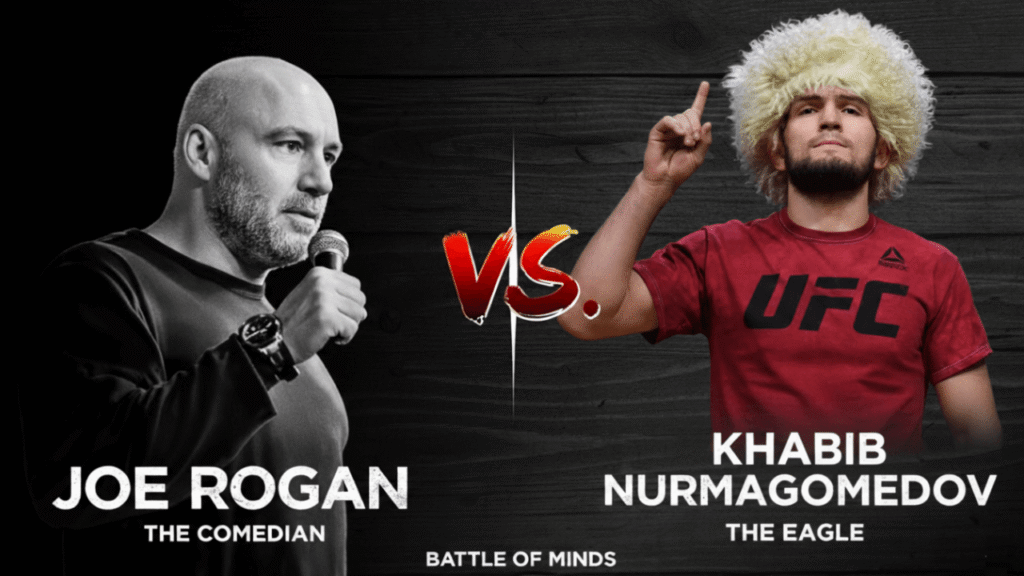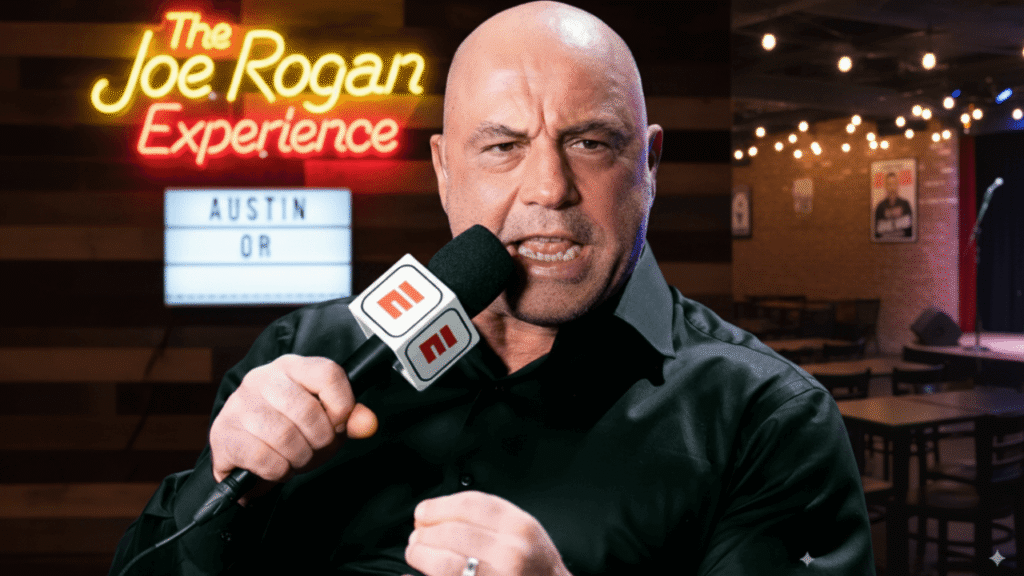Few figures in modern entertainment and media have sparked as much influence, debate, and controversy as Joe Rogan. From his roots as a martial artist and stand-up comedian to becoming the voice of the UFC and host of the world’s most popular podcast, Rogan’s career is as diverse as it is impactful. In recent years, his bold, often controversial statements have kept him at the center of public conversation — making him a cultural icon whose words travel far beyond comedy clubs and octagons.
Early Life and Background
Joe Rogan was born on August 11, 1967, in Newark, New Jersey. Of Italian and Irish descent, he grew up with a strong passion for martial arts, which would later shape much of his professional identity. At age 13, Rogan began practicing Tae Kwon Do, and by the age of 19, he was already a formidable force, winning the US Open Tae Kwon Do Championship as a lightweight and defeating middle and heavyweight champions to claim the Grand Championship.
While martial arts instilled discipline and competitiveness, Rogan’s quick wit and charisma pointed him toward another stage: stand-up comedy.
Career in Comedy and Television
Rogan entered the world of stand-up comedy in the late 1980s, developing a style known for its honesty, observational humor, and unfiltered take on society. Over the decades, he released several acclaimed specials:
- I’m Gonna Be Dead Someday (2000)
- Shiny Happy Jihad (2007)
- Joe Rogan Live (2007)
- Talking Monkeys in Space (2009)
- Live from the Tabernacle (2012)
- Rocky Mountain High (2014)
- Triggered (2016, Netflix)
- Strange Times (2018, Netflix)
- Burn the Boats (2024, Netflix)
Beyond stand-up, Rogan became a household name on television. He starred as Joe Garrelli on NBC’s sitcom NewsRadio (1995–1999) and later gained nationwide fame hosting the reality show Fear Factor (2001–2006; 2011–2012). His curiosity for unusual topics also led to hosting Joe Rogan Questions Everything (SyFy, 2013). He even appeared in films like Here Comes the Boom (2012) and Zookeeper (2011).
The UFC and Martial Arts Legacy
Rogan’s martial arts foundation fueled his next career path: UFC commentary. Starting in 2002, he became one of the sport’s most recognizable voices. Known for his deep technical knowledge and passionate commentary, Rogan helped bring mixed martial arts to mainstream audiences. His credibility comes not just from enthusiasm but from years of personal training and championship experience in Tae Kwon Do and Brazilian Jiu-Jitsu.
The Joe Rogan Experience
Launched on December 24, 2009, The Joe Rogan Experience (JRE) revolutionized podcasting. What began as a casual webcast evolved into one of the most influential podcasts in the world, now distributed exclusively by Spotify. With over 2,000 episodes, often running two to three hours each, Rogan has welcomed comedians, athletes, authors, scientists, and controversial thinkers.
The format is unapologetically long-form, allowing for conversations that explore complex ideas. This authenticity and openness to all perspectives helped the JRE become a destination for millions seeking dialogue beyond soundbites.
Achievements at a Glance
- Stand-Up Comedy: Over 30 years in comedy, with 7+ specials.
- Podcasting Pioneer: Host of the Joe Rogan Experience, Spotify’s crown jewel in podcasting.
- Martial Arts: US Open Tae Kwon Do Grand Champion and lifelong practitioner.
- UFC: Color commentator since 2002, shaping how fans experience MMA.
- Television & Film: Actor in NewsRadio, host of Fear Factor, and appearances in major films.
- Entrepreneurship: Owner of Austin’s Comedy Mothership, a hub for rising and established comedians.
Controversies and Bold Statements
Rogan’s meteoric rise has not come without controversy. Known for his unapologetic style, he frequently shares bold, unfiltered opinions on politics, science, culture, and sports — making him both one of the most admired and criticized voices in modern media.
Khabib Nurmagomedov’s “asterisk” record

Rogan ignited debate in the MMA community when he claimed that UFC legend Khabib Nurmagomedov’s undefeated record (29-0) deserves an asterisk. According to Rogan, Khabib actually lost his 2012 fight against Gleison Tibau — despite the official unanimous decision win. His remarks fueled fierce discussions among fans, fighters, and analysts, questioning how much influence commentary should have on a fighter’s legacy.
Climate Change Misinformation
Rogan also faced widespread backlash for repeatedly misrepresenting climate science on his podcast. Citing a long-term temperature reconstruction study, he argued that Earth is entering a “cooling period” — a claim the actual researchers say is completely false. Experts and environmental advocates accused him of downplaying the severity of the climate crisis, highlighting how misinformation can spread rapidly when amplified by a platform as influential as his.
AI Video Misstep
In September 2025, Rogan became the target of ridicule after falling for an AI-manipulated video showing Minnesota Governor Tim Walz dancing in an anti-Trump T-shirt. Despite his producer confirming it was fake, Rogan initially doubled down, insisting it was real. He later admitted he was wrong, but the incident sparked mockery online and raised concerns about how even influential media figures can fall victim to digital misinformation.entity: an entertainer unafraid of controversy, and a public figure whose voice carries immense influence — for better or worse.
Legacy and Influence
Joe Rogan’s story is not just about comedy, martial arts, or podcasting. It’s about redefining how one person can shape multiple industries while sparking conversations worldwide. Whether you admire him as a truth-seeker or criticize him for his provocations, there’s no denying Rogan’s role as one of the most influential cultural figures of the 21st century.
From Newark to Netflix, from comedy stages to Spotify’s global platform, Joe Rogan continues to challenge, entertain, and divide audiences — and that may be exactly why his impact endures.


